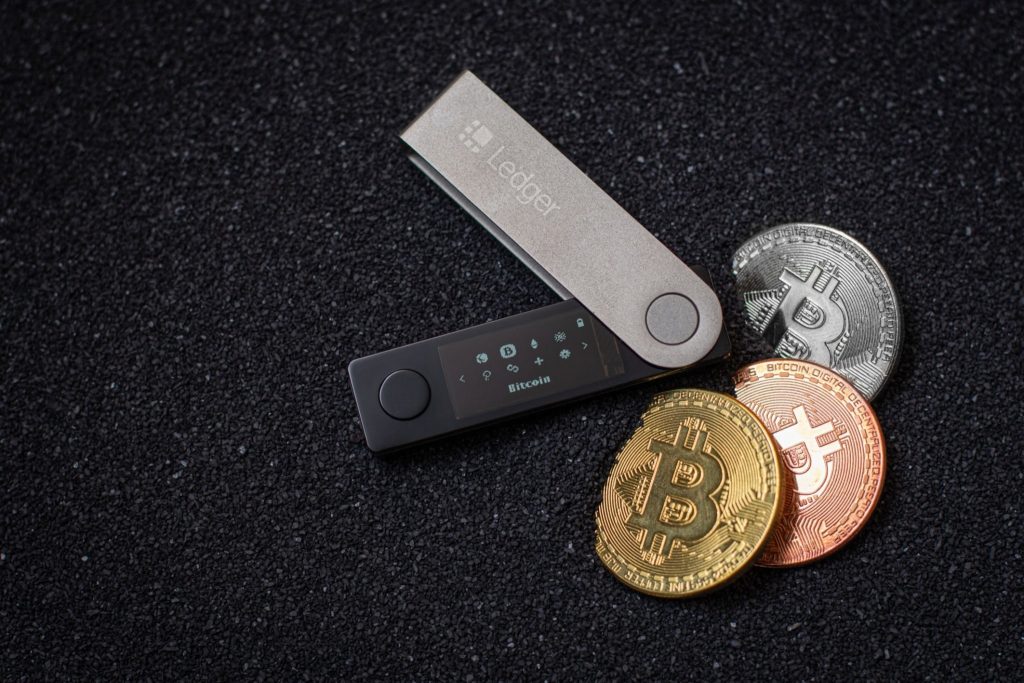So, you’re new to the crypto game, and the idea of stashing your coins in the exchange wallet sounds like a no-brainer, right? Just buy your coins and let the platform handle the rest.
But hold up! The storage solutions you choose for your cryptocurrencies can make all the difference in terms of security.
The issue is that exchange-generated wallets, while offering some level of protection, are far from impregnable.
As we’ve seen in recent years, these wallets can be hacked and millions of dollars worth of coins can be stolen in a flash. And, let’s not forget that there have been instances where exchanges themselves have suspended withdrawals due to internal problems.
Recent cases of exchange frauds and hacks, along with instances where exchanges have paused withdrawals due to internal issues, make it difficult to trust exchanges completely.
For example, in March 2022, hackers stole cryptocurrency worth nearly $615 million from Ronin Systems, a blockchain company. In July 2022, the crypto platform Vauld paused withdrawals and trading due to market volatility and the financial troubles of business partners.
With the rise of these security concerns, it’s becoming increasingly important to store your cryptocurrencies in a safe and secure manner.
How Cryptocurrencies are Stored?
In the world of cryptocurrencies, there are two main options for buying and storing coins: custodial wallets offered by exchanges such as Binance or FTX, or digital wallets provided by platforms like crypto.com or Metamask.
With a custodial wallet, the exchange holds your money in its own account and facilitates transactions between you and others. This is known as Centralized Finance (CeFi), which is similar to traditional banking. However, as the exchange holds control over your funds, it can make your coins vulnerable to hacks or other security breaches.
Alternatively, using a digital wallet allows you to have direct control over your funds with a public and private key. Transactions are conducted peer-to-peer without going through an exchange, making it a more secure option. This system is called Decentralized Finance (DeFi).
Now, let’s take a look at the two primary reasons why holding your bitcoin in exchange isn’t advised.
Two Reasons Why You Shouldn’t Keep Crypto on Exchanges like Binance

1. You do not have control over your private keys
Every cryptocurrency wallet contains two essential keys: a public key and a private key. The public key serves as the wallet’s address and is used when someone wants to send you coins.
On the other hand, the private key functions like the password for your wallet and is required every time you want to access your coins. It ensures that your wallet is only accessible to you.
However, in the case of exchange-provided wallets, your private key is also known to the exchange.
This can be convenient if you ever misplace your private key, as the exchange can supply you with another one after verifying your information. However, it is never advisable to share your private key with anyone, as it is your means of ensuring the security of your cryptocurrency.
A recent example of why this is important is the QuadrigaCX issue, where the private keys of thousands of users were lost after the exchange’s owner died, resulting in the alleged loss of approximately $190 million in cryptocurrency.
2. Wallets on Exchanges can be blocked or frozen.
Exchange wallets, although convenient, come with the risk of being frozen or blocked.
In rare instances, exchanges have been known to freeze or block user wallets without any prior warning, causing frustration for investors. This can occur in cases of fraudulent activity on the platform or even if the exchange itself goes bankrupt.
It’s important to note that if you store your cryptocurrencies on an exchange, your account could potentially be blocked or cancelled without notice.
Examples of this include Binance suspending numerous user accounts between late 2020 and mid-2021 without explanation and users accusing Coinbase of blocking wallets during a Bitcoin bull run in 2020.
How to Keep Your Crypto Safe?
To protect your cryptocurrency, it is recommended to invest in a non-custodial wallet instead of storing it on an exchange. Non-custodial wallets give the owner complete control, including access to the private key.
There are different types of non-custodial wallets available. One type is the non-custodial online wallet, which can be accessed from anywhere using a private key. Examples of these wallets include MetaMask and TrustWallet, and they are suitable for smaller investors and frequent traders.
For larger amounts of cryptocurrency that need to be kept secure, a non-custodial cold wallet, also known as a hardware wallet, is a better option.
These physical wallets, which look like USB sticks or external hard drives, are not connected to the internet, making them nearly immune to hacking.
The private keys in these wallets can only be accessed by the owner, and they cannot be frozen or blocked by anyone else. Examples of hardware wallets include Ledger and Trezor.

While these wallets are more expensive, they provide peace of mind knowing your cryptocurrency is secure.
Keep Your Private Keys Safe & Secure
It is important to keep your private key information secure. One way to do this is to store it offline through cold storage. This can be done by transferring it to an encrypted USB flash drive.
Losing your private key information can be a big problem, as it means you will lose access to your cryptocurrency.
However, there is still hope to recover your cryptocurrency even if you lose your private key. A Recovery Phrase, which serves as a “master key” for all your crypto accounts, can be used to regain access to your cryptocurrency.
The recovery phrase is a string of 12 to 24 phrases that represent the private key information in mnemonic form. To ensure maximum security, you can store fragments of the recovery phrase in multiple locations.
In summary, keeping your cryptocurrency in an exchange wallet comes with additional risks, making it unwise to hold your digital assets there for an extended period of time.
No exchange can guarantee complete security, despite their security measures. As the history of exchanges has shown, no platform is foolproof and issues can arise unexpectedly. To best protect your digital assets, it is recommended to take control by creating a personal digital wallet.
See also: Tips to Protect Your Cryptocurrency from Hackers
About Blockchian Technology
The use of blockchain technology has experienced a phenomenal upsurge lately, attributed to its decentralized structure and inviolable security features.
Incorporating blockchain technology, Bitcoin facilitates the seamless and transparent exchange of digital assets, negating the necessity of intermediaries. More and more businesses use bitcoin technology for their core operations.
The underlying technology behind Bitcoin isn’t limited to digital currencies alone and finds applications in a plethora of other domains, including but not limited to supply chain management, digital identity authentication, and even election systems, with the aim of boosting efficiency and reducing costs.
Despite the growing popularity, the utilization of Bitcoin technology is still marred by regulatory and security-related concerns. However, as the technology continues to evolve and garner widespread acceptance, the horizons of its application are poised to broaden infinitely, potentially disrupting entire industries and changing the way we transact and store data.
Related Posts:
- Top Cryptocurrency Security Concerns
- Bitcoin Generator Hack Tool
- How to Hack Bitcoin Wallet
- Immediate Edge Scam
- Bitcoin Treasure Scam
- Bitcoin Multiplier: Can You Double Your Bitcoin?
- What Security Tips Could Experienced Hackers Give
- The Truth Behind Bitcoin Multiplier Scams
